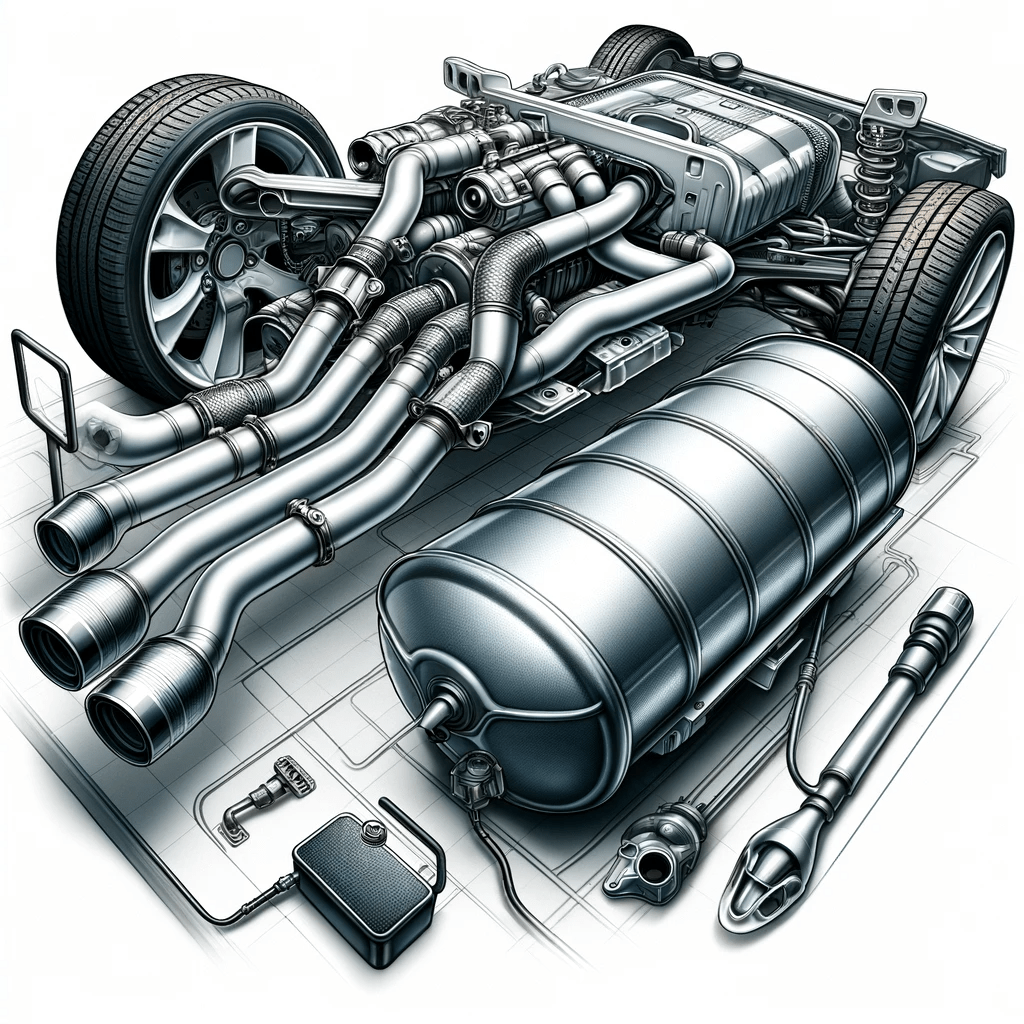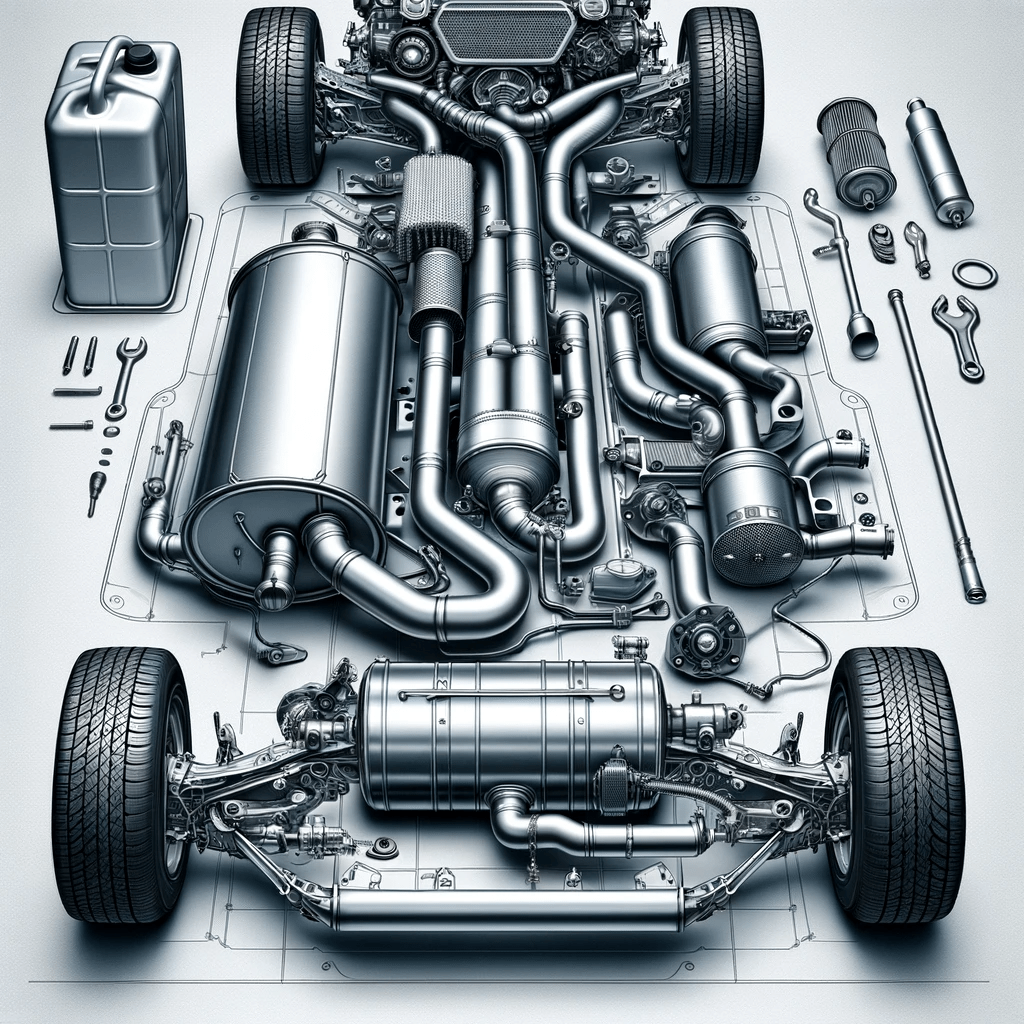Key Takeaways
| Aspect | Impact |
|---|---|
| Improved Exhaust Flow | Can enhance engine efficiency, leading to better fuel economy |
| Weight of System | Lighter systems may contribute to overall vehicle efficiency |
| Backpressure | Optimal backpressure aids in efficient engine operation |
| Engine Size and Type | The impact varies based on the engine’s characteristics |
| Aftermarket Modifications | Must be aligned with engine specs for positive effects |
Understanding the Relationship Between Exhaust Systems and Fuel Efficiency

1. Improved Exhaust Flow
- Enhanced Efficiency: A more efficient exhaust system can lead to better engine performance, potentially improving fuel economy.
- Reduction in Engine Strain: Less strain on the engine can translate to more miles per gallon.
2. Weight Considerations
- Lightweight Materials: Systems made from materials like titanium or certain alloys can reduce overall vehicle weight, contributing to fuel efficiency.
3. Backpressure
- Balanced Backpressure: While too much backpressure can hinder performance, a balanced level is crucial for efficient engine operation, especially in standard, non-performance vehicles.
4. Engine Compatibility
- Match with Engine Specs: The impact on fuel efficiency can vary greatly depending on the engine size and type. High-performance engines might see more benefit from specialized exhaust systems.
5. Aftermarket Modifications

- Alignment with Engine Specifications: Any aftermarket upgrades, such as high-flow catalytic converters, need to be compatible with the vehicle’s engine to positively affect fuel efficiency.
Real-World Examples
- Performance Vehicles: Upgrades like turbocharging can see improved fuel efficiency with a well-tuned exhaust system.
- Daily Drivers: For standard vehicles, an exhaust system that maintains appropriate backpressure and is not excessively large can help in maintaining or slightly improving fuel economy.
Impact of Exhaust System Components on Fuel Efficiency
| Component | Role in Exhaust System | Impact on Fuel Efficiency | More information |
|---|---|---|---|
| High-Flow Catalytic Converters | Reduces exhaust backpressure while maintaining emission standards | Can improve fuel efficiency by reducing engine load | High-Flow Catalytic Converters |
| Performance Mufflers | Controls exhaust sound; affects backpressure | Properly designed mufflers can enhance flow and potentially improve efficiency | Performance Mufflers |
| Turbochargers | Increases engine’s air intake by compressing air | Can improve fuel efficiency in downsized engines | Turbocharging vs. Supercharging |
| Exhaust Manifolds | Collects exhaust gases from engine cylinders | Optimized manifolds ensure efficient gas flow, possibly aiding fuel economy | Exhaust Manifold Upgrades |
| Exhaust System Tuning | Adjusts the system for optimal performance | Tuning for efficiency can lead to better fuel economy | Exhaust System Tuning |
| Lightweight Exhaust Materials | Reduces overall vehicle weight | Lighter materials like titanium can indirectly contribute to fuel savings | Basics of Engine Upgrades |
| Diesel Engine Optimization | Tailoring exhaust for diesel engines | Optimized systems can enhance diesel efficiency | Diesel Engine Optimization |
| Custom Exhaust Systems | Designed to fit specific vehicle requirements | Custom systems can be tuned for a balance of performance and efficiency | Basics of Exhaust Mods to Enhance Performance |
Conclusion: A Delicate Balance
Choosing the right exhaust system for fuel efficiency involves a balance of factors, including exhaust flow, system weight, backpressure, and compatibility with your engine. While a well-designed exhaust system can positively impact fuel efficiency, it’s essential to align any modifications with your vehicle’s specific needs and characteristics.